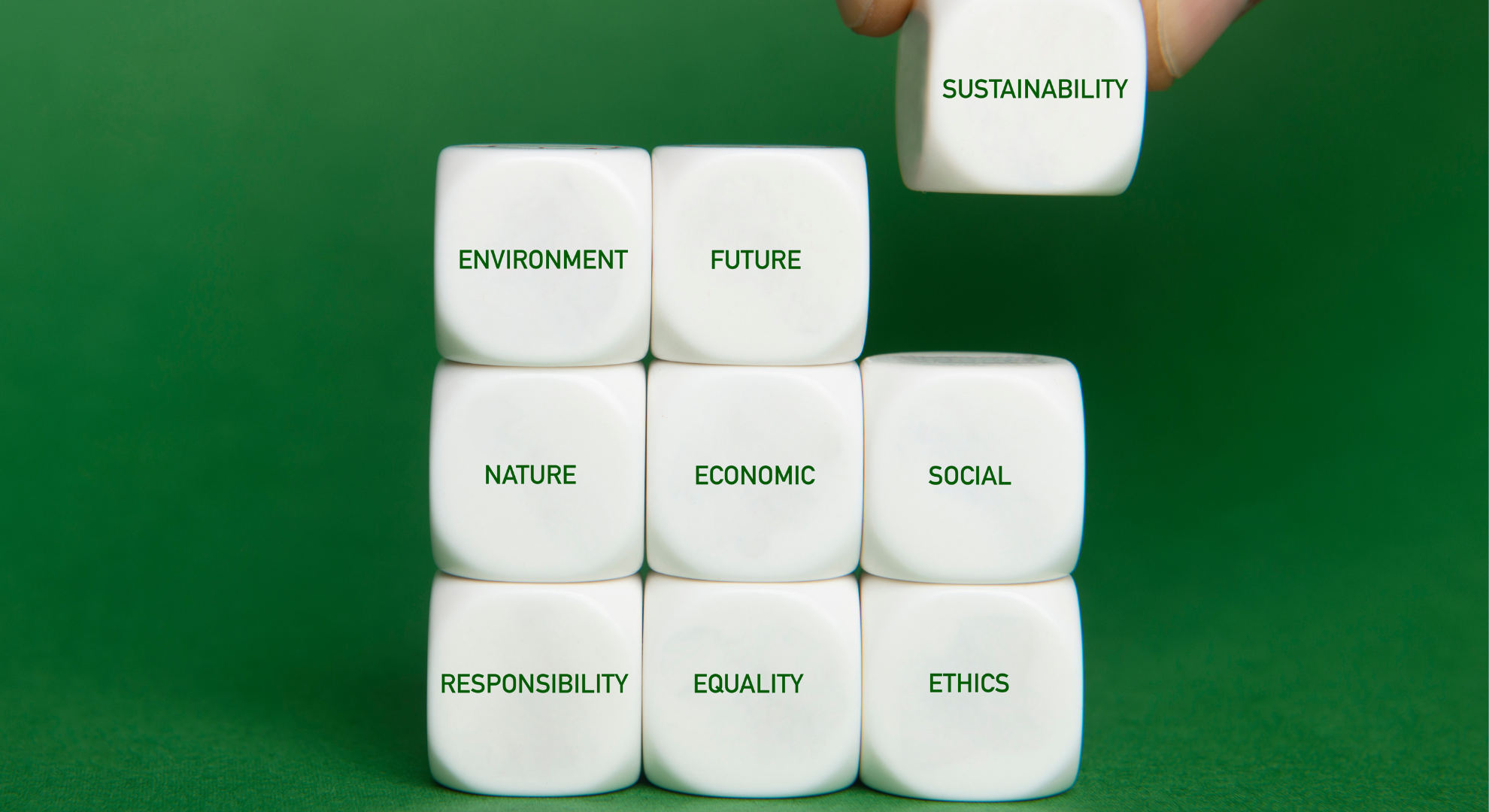Understanding CSR
What is the definition of CSR?
CSR stands for Corporate Social Responsibility.
The European Commission defines CSR as “a concept whereby companies integrate social and environmental concerns in their business operations and in their interaction with their stakeholders on a voluntary basis”.
In short, CSR is centered on the idea that businesses have a responsibility to benefit the society that they exist within—a broader view than the one that says businesses’ only responsibility is to produce economic profit.
How does CSR work?
Corporate social responsibility is a form of self-regulation and can be highly individualized; CSR strategies and activities will vary according to the company in question.
CSR activities are generally not mandated— even though there are more and more regulations on CSR – they are voluntarily undertaken by companies to assess and mitigate impact on society and the environment, as well as to give back to society and reap the benefits associated with creating positive social value (such as improved risk management and higher employee engagement).
CSR practices are often guided by a concept called the “Triple Bottom Line,” which encompasses economic, environmental, and social imperatives in the journey towards positive impact.
CSR Key Concepts and Terms
CSR categories
CSR categories (and subcategories) may differ depending on the regulating body and/or the corporation in question, and classification has changed over the course of time. However, the three broadest and most generally accepted categories are: environmental, social, and economic.
- Environmental: corporations, especially the larger corporations and companies in specific industries, can significantly damage the environment via greenhouse gas emissions, pollution, and resource depletion. Accepting environmental responsibility means committing to monitoring activities that are potentially detrimental to the environment, and preventing negative environmental impacts. This concept is sometimes also known as environmental stewardship.
- Social: ethical responsibility in business means fair business practices—ensuring that all people involved in the corporation’s activity (ie. employees, suppliers, consumers and other stakeholders) are treated fairly and with respect (non-discrimination, workplace safety, products safety, local procurement, etc.).
- Economic: economic responsibility means making financial decisions that considers a greater good and that takes into account the impacts of activities, rather than keeping a narrow focus on making as much money or saving as much money as possible.
Note that while these categories are distinct, they are not mutually exclusive. There are often areas of overlap among the four categories.
Examples of CSR considerations
| Environmental | Social | Economic |
|---|---|---|
| Implementation of a recycling program | Competitive wages and benefits | Investing sustainably |
| Waste or pollution reduction systems | Ethically sourcing materia | Fair trade practices |
| Introducing renewable energy initiatives | Improving labor standards | Transparent supply chain |
| Engaging in a net zero strategy | Improving diversity, equity, and inclusion (DEI) | Philanthropy |
Individual CSR frameworks may also independently establish categories.
For instance, the ISO 26000 identifies seven core subjects (see below), as well as seven key principles focusing on accountability, transparency, ethics, stakeholder interests, human rights, laws and norms.
- Organizational governance
- Human rights
- Labor practices
- Environmental responsibility
- Fair operating practices
- Consumer protection
- Community involvement and development
Principles of CSR
Organizations sometimes create guiding principles (sometimes conflated with CSR responsibilities) for CSR activity.
Note that as with the CSR categorization of responsibilities, there is some variance in which principles are selected. According to research by Crowther and Aras (2008), some basic principles are:
Sustainability
In line with the United Nations’ definition of sustainability—using resources in such a way that future generations may continue to benefit from those same resources.
Accountability
Recognition and acceptance of the fact that the corporation has an impact on its external environment, and a responsibility for the effects of its actions.
Accountability also implies a commitment to quantification and reporting out of impact. Crowther and Aras further define characteristics of good reporting; it must be:
- Understandable to all parties concerned
- Relevant
- Reliable (accurate, representative, and free from bias)
- Comparable (consistent and replicable)
Transparency
All relevant information—ie. relating to the effects of the corporation’s actions—should be readily apparent and not misleading.
Recent Developments
Evolution of CSR Regulations
In 2014, the European Parliament adopted provisions that required some companies (with over 500 employees) to disclose information on their CSR operations and activities, making impact reporting a clear obligation along with the standard financial reporting.
At the time, the three key EU regulations on sustainability disclosure were the EU Taxonomy, the Sustainable Finance Disclosure Regulation (SFDR) and the Non-Financial Reporting Directive (NFRD).
These regulations defined scope of reporting and required activities, with some overlap between the three regulations.
In 2021, the European Commission (EC) adopted a proposal for a Corporate Sustainability Reporting Directive (CSRD) that amended reporting requirements of the NFRD and effectively updated the directives of the aforementioned regulations.
Key things to know about the CSRD proposal is that it:
- Extends the scope of the NFRD
- Requires an audit of reported information
- Introduces more detailed reporting requirements (refers to mandatory EU sustainability reporting standards), and
- Requires companies to make reported information accessible to a shared access point.
Evolution of CSR Topic Focus in Corporations
In light of sobering climate change statistics—the IPCC reports that many extreme weather developments are irreversible now—more and more corporations are recognizing various social and environmental issues as material and are increasing efforts to address and prioritize such topics.
The recognition and perhaps increased commitment to the Triple Bottom Line are evident in larger numbers of corporations attending recent global summits such as COP26 and the IUCN Congress.
The heightened scrutiny of issues that fall within the purview of CSR has led to an evolution in the sort of CSR expertise required.
Companies are now diversifying with CSR experts; as the field of CSR continues to expand, CSR professionals are increasingly specializing in specific topics and are hired to work on dedicated topics, rather than needing to serve as general advisor for all CSR issues.
Some of the biggest issues currently include climate change, biodiversity, and human rights/labor rights.
CSR vocabulary
- Materiality: “An organization's significant economic, environmental and social impact… issues that substantially influence the assessments and decisions of stakeholders.” Definition from NYU Stern
- ARO approach: ARO stands for avoid, reduce, and offset– the three steps, in order of priority, that define sustainability efforts, especially with regards to emissions and resource conservation.
- Sustainable Development Goals: A set of 17 interlinked global goals that were designed by the United Nations as a blueprint for a better and more sustainable future.
- Triple P’s (People, Planet and Profit): Also commonly called the ‘Triple Bottom Line,’ this business framework expands business success metrics beyond immediate profit to include a focus on environmental and social impacts as well.
- Ethical Consumerism: A form of activism wherein consumers choose or reject products based on the practices and values of the company producing the product.
- CSR Verification: According to the CSR Implementation Guide, verification is “a form of measurement that can take place in any number of ways: internal audits, industry (peer) and stakeholder reviews, and professional third-party audits”. Going through the verification process is a best practice for CSR activities because verification strengthens transparency and accountability around CSR.
- Stakeholder theory: The basis for the stakeholder theory is similar to the basis for CSR—the idea that companies should create widespread value, not just for shareholders. The stakeholder theory highlights the varied relationships between all groups and individuals impacted by the corporation in question, and holds that these relationships should create positive value. Examples of potential company stakeholders might include: employees, customers/clients, suppliers, the local community, and public authorities.
Related articles
Global Reporting Initiative: What It Is and How to Do It
GRI stands for Global Reporting Initiative, and is an international independent standards organization that promotes sustainability reporting through the development of global standards for corporate responsibility, including environmental, social and governance (ESG) reporting...
Impact – What is Impact
The Corporate Sustainability Reporting Directive (CSRD) requires large businesses and SMEs to produce annual reports on their environmental and social impacts.
CSRD – What is CSRD
The Corporate Sustainability Reporting Directive (CSRD) requires large businesses and SMEs to produce annual reports on their environmental and social impacts.
Corporate Sustainability Reporting Directive: All you need to know
The Corporate Sustainability Reporting Directive is an EU regulation that will have a huge impact on how organisations report their environmental, social and governance (ESG) performance...
Sustainability – What is Sustainability
The GRI is an international independent standards organization and currently issues one of the most well-known standards for ESG reporting (GRI Standards).
Discover the latest Sustainability Recent Developments to improve your companies
Sustainability is a concept that evolves due to pressing sustainability challenges, worldwide issues, and its own concept limits. New concepts have emerged to think further and respond better to all the world’s current challenges...
GRI – What is the Global Reporting Initiative
The GRI is an international independent standards organization and currently issues one of the most well-known standards for ESG reporting (GRI Standards).
What is Materiality and Why it matters in business
Materiality is crucial for sustainability reporting because it allows companies to focus on the most important aspects of their sustainability efforts. A company can choose to report on all aspects of its sustainability program, but this would be extremely time-consuming and would probably not be very useful for investors and other stakeholders...
Materiality – What is Materiality
ESG is an acronym for Environmental, Social, and (Corporate) Governance. It refers to the non-financial factors of a corporation’s impact.
EcoVadis – What is EcoVadis rating
Created in 2007, EcoVadis provides a collaborative web-based rating platform for assessing the sustainability performance of organizations worldwide.
Impact-washing – What is Impact-washing
Impact washing can be defined as any marketing claim about a product/good/service/funds triggering a change in the real economy that cannot be supported by evidence.
ISO 26000 – What is ISO 26000
ESG is an acronym for Environmental, Social, and (Corporate) Governance. It refers to the non-financial factors of a corporation’s impact.
B Corp – What is B Corporation certification
ESG is an acronym for Environmental, Social, and (Corporate) Governance. It refers to the non-financial factors of a corporation’s impact.
The concept of impact on social and environmental issues and its implication for companies
Impact measurement is a powerful tool for companies to gauge their impact on social and environmental issues. In this article, we will discuss the concept of impact, its implications for organizations, and how it can be measured...
The most important and recent developments of ESG (Environmental, Social and Governance)
Being a B Corporation is not just about making profits and creating wealth for a company, it is a way of creating a more sustainable future for society! Discover our article about B corps and its benefits here...
The process for an enterprise to get the B corp certification
Becoming a B Corporation is an ambitious undertaking. This article will guide you through the steps required to become a B Corporation…
What is a B Corporation: what this means and its benefits for companies
Being a B Corporation is not just about making profits and creating wealth for a company, it is a way of creating a more sustainable future for society! Discover our article about B corps and its benefits here...
The guide to EcoVadis certification: frequently asked questions
This guide will take you through the steps of the EcoVadis Certification process, and explain what is involved in becoming a certified business...
The implications of ISO 26000 for companies
ISO 26000 is a standard providing direction for the application of social responsibility to the activities of an organization. But what does this mean? And how can organizations use it to create better and more sustainable business practices? Let's talk about it…
What is the meaning of CSR (Corporate social responsibility) and how to adopt it?
A Corporate Social Responsibility strategy refers to an organization's active consideration of the effects its activities have on the environment, employees, customers, and suppliers. Let's look at how your company could adopt such a program...
ESG – What is Environmental, Social and Governance
ESG is an acronym for Environmental, Social, and (Corporate) Governance. It refers to the non-financial factors of a corporation’s impact.
4 reasons companies should adopt CSR, Corporate social responsibility
CSR is all about managing a company’s externalities while creating sustainable value for stakeholders and continuous innovation for the business. Let's break that down and explore why...
Carbon disclosure project reporting: what is it and how does it work?
Read our article about The Carbon Disclosure Project (CDP), an extra-financial questionnaire that collects data on companies’ environmental practices and performance...
What are the differences between Corporate Social Responsibility (CSR) and Environmental Social Governance (ESG)?
These terms are both used to describe an approach for businesses to integrate social and environmental factors into their governance policies, strategies, processes, and programs. Yet, they're not the same. Let's explore their key differences...
Why is ESG (Environmental, Social and Governance) important for a business
ESG (environmental, social and governance) can help businesses make sound decisions, and investors achieve better long-term returns. Let's discover how...














